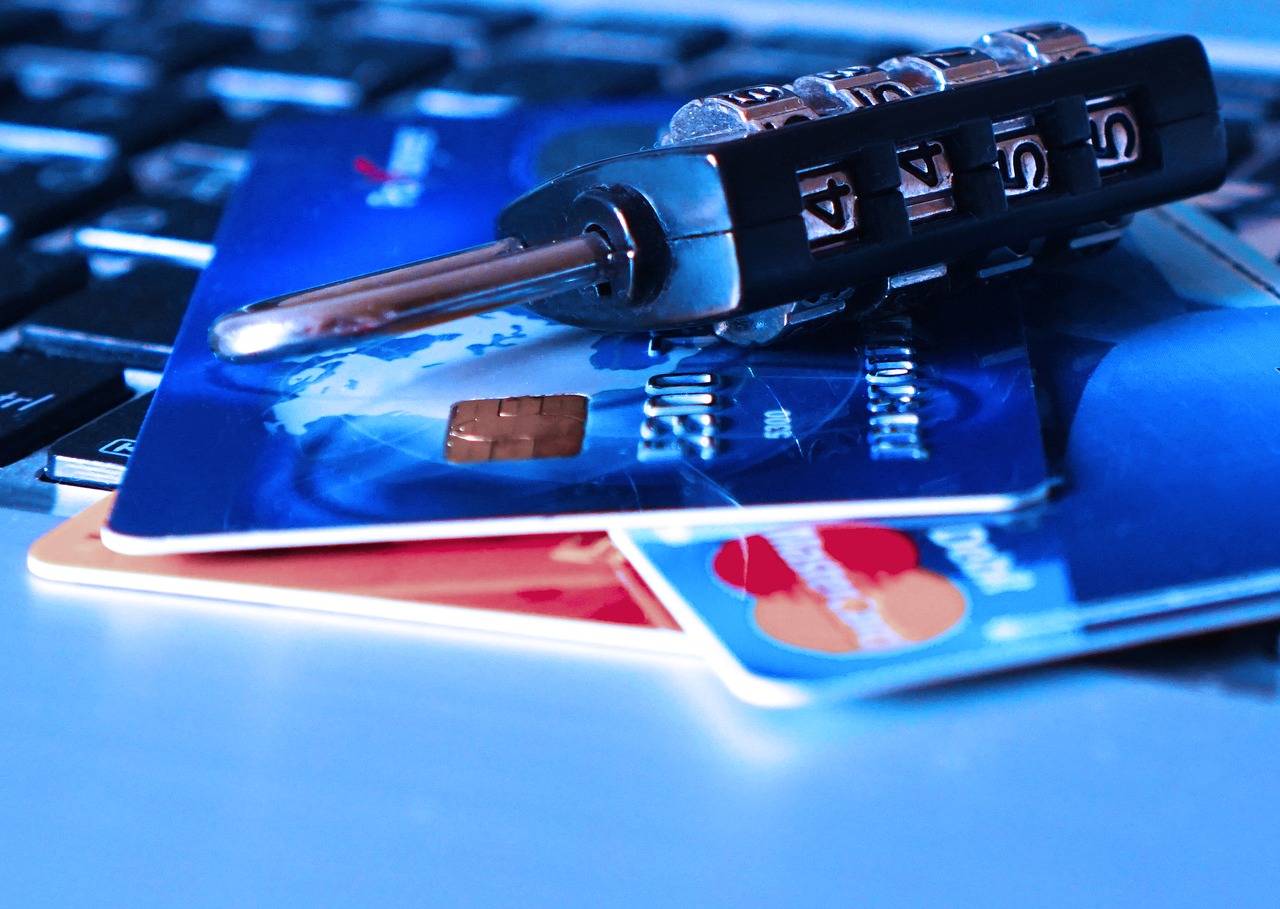Introduction
The rise of Bitcoin, a decentralized digital currency, has had a significant impact on various aspects of society. While it was intended to serve as an alternative to traditional financial systems, Bitcoin has also attracted the attention of criminals due to its perceived anonymity and decentralized nature. In this article, we will explore why criminals are drawn to Bitcoin and the implications it has for law enforcement agencies.
Bitcoin provides users with the ability to conduct transactions without the need for intermediaries such as banks. It offers a level of anonymity and pseudonymity that is appealing to those involved in illicit activities. By utilizing Bitcoin, criminals believe they can avoid detection and circumvent traditional financial monitoring systems.
One of the key reasons why criminals are attracted to Bitcoin is the difficulty in tracing transactions. While the blockchain, the public ledger that records all Bitcoin transactions, is viewable by anyone, the identities behind the transactions are not immediately evident. Transactions are recorded using cryptographic addresses, which are alphanumeric strings that do not reveal personal information. This makes it challenging for law enforcement agencies to track the movement of illicit funds.
Another factor that makes Bitcoin appealing to criminals is its potential for money laundering. Bitcoin can be easily converted into other cryptocurrencies or fiat currencies, providing an avenue for criminals to obfuscate the origins of their illicit proceeds. By utilizing various mixing techniques, such as tumbling or coinjoin, criminals can further enhance the difficulty in linking Bitcoin transactions to their real-world identities.
Ransomware attacks have become increasingly prevalent in recent years, and Bitcoin has become the preferred method of payment for those seeking to extort money from their victims. The decentralized nature of Bitcoin allows cybercriminals to anonymously receive payments, making it difficult for law enforcement to track them down. Additionally, the irreversible nature of Bitcoin transactions means that once the ransom is paid, it is nearly impossible to reverse the transaction and recover the funds.
Anonymity and Pseudonymity in Bitcoin Transactions
One of the main reasons why criminals are attracted to Bitcoin is the perceived anonymity and pseudonymity it offers. While Bitcoin transactions are recorded on a public ledger known as the blockchain, the identities behind those transactions are not immediately apparent. This level of privacy makes it appealing for individuals engaged in illicit activities.
When conducting Bitcoin transactions, users are represented by cryptographic addresses, which are alphanumeric strings that do not reveal personal information. This allows users to maintain a certain degree of anonymity and pseudonymity. While transactions on the blockchain are transparent and visible to all, it is difficult to link those transactions directly to the real-world identities of the individuals involved.
Bitcoin offers a significant degree of privacy compared to traditional financial systems. In traditional banking, transactions are often linked to personal bank accounts, making it easier for authorities to trace the flow of funds and identify the individuals involved. With Bitcoin, the use of cryptographic addresses makes it much more challenging to uncover the true identities of those conducting the transactions.
It is important to note, however, that while Bitcoin transactions can be anonymous to a certain extent, they are not entirely untraceable. With careful analysis and investigation, it is possible for law enforcement agencies to link specific transactions to individuals, especially when additional information is obtained from other sources, such as exchanges or wallet providers.
To further enhance the privacy and anonymity of their transactions, some criminals employ additional techniques. One such technique is the use of mixing services, also known as tumbling or coinjoin. These services allow individuals to pool their Bitcoin with others, making it difficult to trace the original source of the funds. Mixing services create a complicated web of transactions, making it challenging for investigators to follow the money trail.
While the privacy and anonymity features of Bitcoin can be attractive to criminals, they have also raised concerns among regulators and law enforcement agencies. The potential for money laundering and illicit activities has led to calls for increased transparency and regulation in the cryptocurrency space. Some jurisdictions have implemented regulations to combat money laundering and illicit financing, requiring exchanges and other cryptocurrency service providers to adhere to certain KYC (Know Your Customer) and AML (Anti-Money Laundering) practices.
Difficulties in Tracing Bitcoin Transactions
Tracing Bitcoin transactions is an intricate task for law enforcement agencies due to several factors that make it challenging to uncover the identities and flow of funds. These difficulties contribute to the appeal of Bitcoin for criminals engaged in illicit activities.
One of the primary challenges law enforcement agencies face is the pseudonymous nature of Bitcoin transactions. While transactions on the blockchain are visible to all, the identities behind those transactions are not immediately apparent. Bitcoin addresses, represented by alphanumeric strings, are used instead of personal information, making it difficult to link transactions to individuals.
Furthermore, Bitcoin addresses can be easily generated and discarded, allowing criminals to use new addresses for each transaction. This makes it challenging for investigators to establish a consistent history of activities and track the movement of funds. By constantly generating new addresses, criminals can obfuscate their illicit transactions and make it more difficult to trace the flow of funds.
Another obstacle in tracing Bitcoin transactions is the lack of a central authority or intermediary. Unlike traditional banking systems where transactions are processed and recorded by financial institutions, Bitcoin operates on a decentralized network. This means that there is no central entity that can easily provide information or cooperate with law enforcement requests.
In addition to the lack of a central authority, Bitcoin transactions are irreversible. Once a transaction is confirmed and added to the blockchain, it cannot be reversed or altered. This poses a challenge for authorities trying to recover funds or reverse fraudulent transactions conducted by criminals. Once the funds are transferred, it becomes difficult to retrieve them through legal means.
Furthermore, the global nature of Bitcoin transactions adds complexity to tracing efforts. Bitcoin allows for cross-border transactions without the need for extensive documentation or approval. This makes it challenging for law enforcement agencies from different jurisdictions to collaborate and share information effectively.
Despite these challenges, law enforcement agencies are developing strategies and tools to enhance their ability to trace and investigate Bitcoin transactions. The use of sophisticated blockchain analysis techniques and partnerships with cryptocurrency exchanges and service providers can assist in identifying individuals involved in illicit activities. Additionally, international cooperation between agencies is crucial to combatting cross-border criminal activities involving Bitcoin.
Overall, the difficulties in tracing Bitcoin transactions pose significant challenges for law enforcement agencies. As criminals continue to exploit the pseudonymous and decentralized nature of Bitcoin, authorities must adapt and collaborate to effectively investigate and deter illicit activities in the cryptocurrency space.
Potential Money Laundering Opportunities
Bitcoin presents potential money laundering opportunities for criminals due to its decentralized nature and the ability to convert it into other cryptocurrencies or fiat currencies. These opportunities attract individuals involved in illicit activities seeking to obfuscate the origins of their proceeds.
One of the main challenges in money laundering investigations involving Bitcoin is the difficulty in tracing the flow of funds. While all Bitcoin transactions are recorded on the blockchain, the identities behind those transactions are not immediately evident. This creates a level of privacy and pseudonymity that criminals can exploit to launder their illicit proceeds.
Criminals often employ mixing techniques to further enhance the difficulty of tracing their transactions. Mixing services, also known as tumbling or coinjoin, allow individuals to pool their Bitcoin with others, creating a complex web of transactions. These services aim to increase anonymity by making it challenging to determine the original source of the funds. This mixing process muddies the money trail and makes it more difficult for law enforcement to follow.
Once the Bitcoin is mixed, criminals have the option to convert it into other cryptocurrencies or fiat currencies. By using cryptocurrency exchanges or peer-to-peer platforms, they can convert their Bitcoin into more privacy-focused cryptocurrencies, such as Monero or Zcash. These cryptocurrencies provide additional layers of privacy and may offer even greater challenges for authorities attempting to investigate money laundering activities.
Furthermore, criminals may choose to convert their Bitcoin into fiat currencies through regulated exchanges or decentralized platforms. This process can involve multiple transactions and accounts, making it difficult to trace the origins of the funds. Additionally, the global nature of Bitcoin allows for transactions across borders without extensive documentation, providing an opportunity for money launderers to exploit jurisdictional gaps.
To combat money laundering in the cryptocurrency space, regulatory measures have been implemented in some jurisdictions. These measures require cryptocurrency service providers to adhere to Know Your Customer (KYC) and Anti-Money Laundering (AML) practices. Exchanges and other service providers are now required to verify the identities of their customers and report suspicious activities to regulatory authorities.
However, the anonymous and decentralized nature of Bitcoin still presents challenges for effective anti-money laundering efforts. Regulatory measures must continue to evolve and adapt, keeping pace with the evolving techniques employed by criminals.
Law enforcement agencies and financial regulatory bodies are increasingly working together to enhance their capabilities in detecting and preventing money laundering activities involving Bitcoin. The development of advanced blockchain analysis tools and increased cooperation between agencies can aid in uncovering illicit financial transactions and dismantling money laundering networks.
Overall, the potential money laundering opportunities presented by Bitcoin’s anonymity and convertibility into various cryptocurrencies or fiat currencies make it an attractive choice for criminals seeking to launder illicit funds. The implementation of robust regulatory measures, coupled with technological advancements and international cooperation, is vital in combatting this ongoing challenge.
Ransomware and Bitcoin
Ransomware attacks have become increasingly prevalent in recent years, and Bitcoin has emerged as the preferred method of payment for cybercriminals involved in these malicious activities. The decentralized nature of Bitcoin and its potential for anonymous transactions make it an ideal choice for those seeking to extort money from victims.
Ransomware is a type of malware that encrypts the victim’s files or locks them out of their own devices, rendering them inaccessible. To regain access, victims are typically required to pay a ransom within a specified timeframe, often in Bitcoin. The anonymity provided by Bitcoin makes it difficult for law enforcement to trace the flow of funds and link the transactions to the perpetrators.
Bitcoin’s decentralized nature allows cybercriminals to receive ransom payments directly, without the need for intermediaries. They can demand payment in Bitcoin, often specifying an amount and providing a unique Bitcoin address for victims to send the funds. Once the payment is made, it becomes extremely challenging for authorities to identify and track down the individuals behind the ransomware attacks.
Moreover, Bitcoin transactions are irreversible, which gives further advantage to the cybercriminals. Once the ransom amount is paid, it is nearly impossible for victims to reverse the transaction and recover their funds. This aspect of Bitcoin adds urgency and pressure on the victims to comply with the demands of the attackers.
Bitcoin’s reputation as the preferred payment method for ransomware attacks has fueled concerns about its role in facilitating cybercrime. While there have been calls for stricter regulations and monitoring of cryptocurrency transactions, the decentralized nature of Bitcoin makes it difficult to implement such measures effectively.
In response to the rise of ransomware attacks, law enforcement agencies and cybersecurity firms have been working diligently to combat this threat. The development of ransomware decryption tools and the cooperation between organizations have helped to mitigate the impact of these attacks. Additionally, education and awareness campaigns have been launched to educate individuals and businesses on preventive measures to avoid falling prey to ransomware.
However, the use of Bitcoin in ransomware attacks continues to pose a significant challenge. It is crucial for individuals and organizations to prioritize cybersecurity measures such as regularly updating software, maintaining robust backup systems, and exercising caution when opening email attachments or visiting suspicious websites.
Overall, the anonymity and irreversibility of Bitcoin transactions make it an attractive choice for cybercriminals involved in ransomware attacks. Mitigating this threat requires a combination of technological advancements, international cooperation, and user education to protect individuals and organizations from falling victim to these nefarious activities.
Silk Road and the Dark Web
The Silk Road was an infamous online marketplace that operated on the dark web, an encrypted network that allows for anonymous and untraceable internet activity. The Silk Road gained notoriety for facilitating the sale of illegal drugs, counterfeit goods, hacking tools, and other illicit items, all of which were purchased using Bitcoin.
Bitcoin played a crucial role in the operations of the Silk Road due to its perceived anonymity and decentralized nature. Users could browse the Silk Road and make purchases without revealing their true identities, as Bitcoin transactions do not inherently disclose personal information. This feature made it highly attractive for both buyers and sellers on the platform.
The Silk Road utilized escrow services, where the Bitcoin funds for a transaction were held in escrow until both parties were satisfied with the completion of the deal. This added a level of trust and security for buyers and sellers, as disputes could be mediated by the administrators of the Silk Road.
The anonymity provided by Bitcoin and the encrypted nature of the dark web made it extremely difficult for law enforcement agencies to identify and apprehend the individuals behind the Silk Road. It took a collaborative effort between various international law enforcement agencies to shut down the Silk Road in 2013 and arrest its founder, Ross Ulbricht.
The case of the Silk Road brought attention to the use of Bitcoin in facilitating illegal activities on the dark web. It highlighted the potential challenges law enforcement face in investigating and dismantling online criminal marketplaces that operate using cryptocurrencies.
Since the Silk Road’s closure, the dark web and the use of Bitcoin for illicit activities have continued to evolve. New marketplaces have emerged, offering a range of illegal goods and services, from drugs and weapons to hacking tools and stolen data.
Law enforcement agencies have stepped up their efforts to track and intercept these illegal activities, employing advanced forensic techniques and collaborating with international partners. The goal is to disrupt the operations of these marketplaces and apprehend those involved in illegal transactions.
Additionally, the regulatory landscape surrounding cryptocurrencies has evolved in response to the challenges posed by the dark web and Bitcoin. Some jurisdictions have implemented stricter regulations on cryptocurrency exchanges and wallet providers to enhance transparency and prevent the abuse of cryptocurrencies for illegal purposes.
While the Silk Road and the dark web showcased the illicit use of Bitcoin, it is important to remember that the majority of Bitcoin transactions are legitimate and lawful. Bitcoin has also been utilized for positive purposes, such as donations to charities, cross-border remittances, and as a store of value in countries with unstable financial systems.
Overall, the Silk Road and the dark web exemplified the intersection of illicit activities and the use of Bitcoin. The case shed light on the challenges law enforcement agencies face in combating online criminal marketplaces and highlighted the need for ongoing collaboration and technological advancements to address these evolving threats.
Bitcoin as a Tool for Fraud and Scams
Bitcoin has become a favored tool for fraudsters and scammers due to its perceived anonymity, irreversible transactions, and global accessibility. The decentralized nature of Bitcoin makes it a convenient means for conducting fraudulent activities, ranging from investment scams to Ponzi schemes.
One common form of Bitcoin fraud is investment scams, where individuals or groups promise high returns on investments in Bitcoin or other cryptocurrencies. These scams often use persuasive tactics and false promises to attract unsuspecting investors. Once victims transfer their Bitcoin to the fraudsters, the scammers disappear, leaving investors empty-handed.
Another popular Bitcoin-related scam is phishing, where cybercriminals attempt to obtain sensitive information, such as private keys or login credentials, by posing as legitimate websites or services. They may send phishing emails or create fake websites that imitate reputable cryptocurrency exchanges or wallets. Once users unknowingly provide their information, scammers can gain access to their Bitcoin holdings and steal their funds.
Ponzi schemes, which promise high returns on investment by using funds from new investors to pay existing ones, have also infiltrated the Bitcoin space. These schemes often entice individuals with the potential for quick and substantial profits. However, they are unsustainable and collapse when there are not enough new investors to sustain the payouts.
The irreversibility of Bitcoin transactions poses a challenge for victims of fraud and scams. Once Bitcoin is sent to a scammer’s address, it is nearly impossible to recover the funds through legal means. This characteristic of Bitcoin makes it enticing for fraudsters, as it eliminates the risk of chargebacks or reversals.
Furthermore, the global nature of Bitcoin enables scammers to target victims from all over the world. The lack of a central authority overseeing Bitcoin transactions and the cross-border nature of the cryptocurrency make it difficult for law enforcement agencies to track down and apprehend scammers operating across multiple jurisdictions.
As the popularity of cryptocurrencies continues to grow, it is essential for users to be aware of these fraudulent activities and exercise caution. Users should thoroughly research any investment opportunities and be skeptical of any offers that seem too good to be true. Implementing robust security measures, such as using hardware wallets and enabling two-factor authentication, can also help protect against scammers.
Law enforcement agencies and regulatory bodies are actively working to combat Bitcoin-related fraud and scams. They are increasing public awareness, investigating fraudulent activities, and implementing regulations to protect users. However, it remains a constant battle as scammers adapt their tactics to exploit the growing interest in cryptocurrencies.
Ultimately, to minimize the risks associated with Bitcoin fraud and scams, users must remain vigilant, educate themselves about potential threats, and stay informed about the latest security practices in the cryptocurrency space.
Bitcoin’s Volatility and Criminals
Bitcoin’s inherent volatility presents both opportunities and challenges for criminals involved in illicit activities. While the price fluctuations and potential for significant gains have attracted some criminals, the volatility of Bitcoin also poses risks and uncertainties for their operations.
One way criminals attempt to exploit Bitcoin’s volatility is through pump and dump schemes. In these schemes, individuals or groups artificially inflate the price of a particular cryptocurrency, often through false or misleading information, to attract naïve investors. Once the price reaches a peak, the criminals sell their holdings, causing the price to crash and leaving unsuspecting investors with significant losses.
Bitcoin’s price volatility also presents challenges for criminals engaged in money laundering. Cryptocurrency exchanges, which are often used to convert Bitcoin into fiat currencies, are required to comply with Anti-Money Laundering (AML) and Know Your Customer (KYC) regulations. These regulations aim to prevent money laundering by ensuring that transactions are transparent and traceable. However, the volatile nature of Bitcoin can make it difficult for criminals to accurately estimate their proceeds and predict the value of their illicit funds after conversion.
Furthermore, the unpredictable fluctuations in Bitcoin’s value make it challenging for criminals to plan and budget their illicit activities. Criminal enterprises that rely on Bitcoin for funding or payments may face difficulties if the value of Bitcoin suddenly crashes, reducing the value of their proceeds. This volatility can disrupt criminal operations and potentially impact their ability to carry out further illegal activities.
On the other hand, the potential for substantial gains from Bitcoin’s price volatility can attract criminals involved in ransom-related activities. Ransomware attacks, for example, often demand payment in Bitcoin due to its perceived anonymity and irreversibility. Criminals may hold and monitor the Bitcoin received as ransom, waiting for favorable market conditions to convert it into a higher-value currency. This strategy allows them to potentially maximize their illicit gains.
Bitcoin’s volatility also poses challenges for law enforcement agencies attempting to seize the proceeds of criminal activities. If Bitcoin prices fluctuate significantly during the course of an investigation, the value of seized Bitcoin may vary greatly, affecting the overall impact of the enforcement efforts. Additionally, the involvement of Bitcoin in criminal activities can contribute to market volatility, causing fluctuations that impact legitimate investors and traders.
Regulatory efforts to mitigate Bitcoin’s volatility are ongoing, with some countries introducing measures to stabilize the cryptocurrency market. However, these efforts face many obstacles due to the decentralized nature of Bitcoin and the speculative nature of the market itself.
In summary, Bitcoin’s volatility presents both opportunities and challenges for criminals. While it can be enticing for pump and dump schemes and potentially high gains, it also poses risks and uncertainties for criminal operations, money laundering, and budgeting. Ultimately, the volatility of Bitcoin is an aspect that must be carefully considered by both criminals and law enforcement agencies in their respective endeavors.
Regulation and Law Enforcement Challenges
The emergence of Bitcoin and other cryptocurrencies has raised significant regulatory and law enforcement challenges. The decentralized and global nature of cryptocurrencies poses unique difficulties in implementing effective regulations and enforcing compliance with existing laws.
One of the primary challenges in regulating cryptocurrencies is the lack of a central authority or governing body. Traditional financial systems operate under the purview of central banks and regulatory bodies, allowing for oversight and governance. However, cryptocurrencies operate on decentralized networks, making it challenging to implement and enforce regulations uniformly.
Regulatory bodies are faced with the task of striking a delicate balance between protecting consumers and investors, preventing illicit activities, and fostering innovation in the cryptocurrency industry. Regulations need to address concerns related to fraud, scams, money laundering, terrorist financing, and consumer protection while promoting the growth of the legitimate cryptocurrency ecosystem.
Additionally, the cross-border nature of cryptocurrencies presents challenges for regulatory coordination and cooperation between jurisdictions. With transactions occurring online, it can be challenging to identify the jurisdiction in which a particular transaction took place or the parties involved. This lack of clarity can hinder the enforcement of regulations and the pursuit of criminal activities.
Law enforcement agencies face significant challenges in investigating and prosecuting crimes involving cryptocurrencies. The anonymity provided by cryptocurrencies makes it difficult to trace transactions and identify individuals involved in illicit activities. The pseudonymous nature of Bitcoin transactions adds an additional layer of complexity, further hindering law enforcement efforts.
Blockchain analysis tools have been developed to assist law enforcement agencies in identifying suspicious activities and tracking illicit transactions. These tools analyze the blockchain’s transparency to identify patterns and link transactions to specific individuals or entities. However, the constant evolution of privacy-enhancing technologies and the increasing use of mixer services make it a constant battle for law enforcement to keep up with sophisticated criminal tactics.
Moreover, the fast-paced and constantly changing nature of the cryptocurrency industry poses challenges for both regulators and law enforcement. As new cryptocurrencies and innovative technologies are introduced, regulatory frameworks must adapt to address new risks and keep pace with the evolving landscape. This requires collaboration between regulators, law enforcement agencies, and industry participants to create effective policies and standards.
International cooperation is critical in addressing the global challenges posed by cryptocurrencies. Law enforcement agencies and regulatory bodies around the world need to work together to share information, resources, and best practices to combat illicit activities effectively. Interpol, Europol, and other international entities play a vital role in facilitating this cooperation and promoting a coordinated response.
In summary, the regulation of cryptocurrencies and the challenges for law enforcement stem from their decentralized and global nature. Striking the right balance between regulation and innovation, fostering international cooperation, and staying ahead of criminal tactics are ongoing challenges that regulatory bodies and law enforcement agencies must address to ensure the legitimate and secure use of cryptocurrencies.
Conclusion
The rise of Bitcoin has brought about numerous opportunities and challenges in the realm of criminal activities, regulation, and law enforcement. Criminals are drawn to Bitcoin due to its perceived anonymity, difficulty in tracing transactions, and potential for money laundering. From ransomware attacks to illicit marketplaces on the dark web, Bitcoin has become a preferred tool for various types of criminal activities.
Law enforcement agencies face significant difficulties in investigating and prosecuting crimes involving Bitcoin. The decentralized nature of the cryptocurrency and the anonymity it provides make it challenging to identify and track down individuals involved in illicit activities. The volatility of Bitcoin adds further complexity to law enforcement efforts, affecting the investigation, seizure, and recovery of funds.
To address these challenges, regulatory bodies are striving to strike a balance between consumer protection, preventing illicit activities, and fostering innovation. The implementation of regulations and compliance measures in the cryptocurrency space aims to enhance transparency, prevent fraud and scams, and deter money laundering. However, the decentralized nature of Bitcoin poses obstacles to effective regulation, requiring ongoing adaptation and international cooperation.
The constant evolution of illicit activities involving Bitcoin and the technological advancements employed by criminals necessitate continuous cooperation and collaboration between law enforcement agencies, regulatory bodies, and the cryptocurrency industry. This allows for the development of innovative tools and strategies to combat criminal activities while preserving the benefits of cryptocurrencies for legitimate users.
While criminals exploit Bitcoin for illicit purposes, it is important to recognize that the majority of Bitcoin transactions are legitimate and lawful. Bitcoin and other cryptocurrencies have the potential to revolutionize the financial industry, providing benefits such as fast cross-border transactions, financial inclusion, and secure digital asset storage.
As the landscape of cryptocurrencies continues to evolve, it is essential for users, investors, and stakeholders to stay informed and educated about the risks and best practices. Implementing robust security measures, conducting thorough due diligence, and remaining vigilant against fraud and scams are crucial in protecting oneself from the potential pitfalls associated with Bitcoin and other cryptocurrencies.
Ultimately, the effective management of Bitcoin and its impact on criminal activities, regulation, and law enforcement requires a multi-faceted approach that balances innovation, compliance, and cooperation. By addressing these challenges head-on, society can harness the potential of cryptocurrencies and blockchain technology while safeguarding against illicit activities.

























